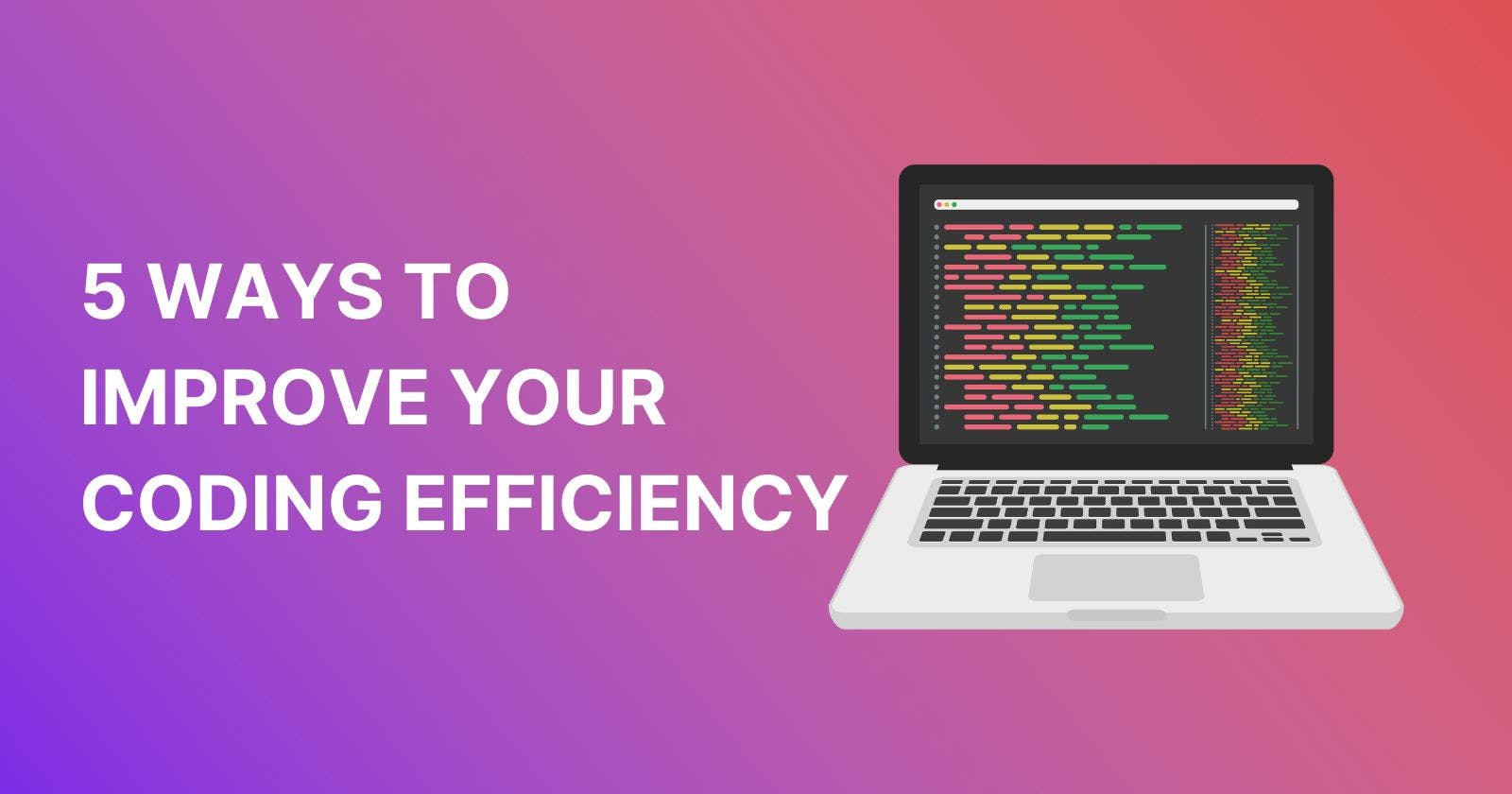Your coding efficiency is directly tied to your productivity and success in the industry. Whether you're a seasoned veteran or just starting, there's always room for improvement.
Here are five ways to improve your coding efficiency and take your skills to the next level:
Practice deliberate coding
The old adage "practice makes perfect" holds true in coding as well. However, simply coding for hours on end won't necessarily make you a better programmer. Instead, focus on deliberate practice - intentionally setting aside time to work on specific skills or challenges.
This can involve working through coding exercises, experimenting with new languages or frameworks, or building personal projects that stretch your abilities.
Learn keyboard shortcuts
Keyboard shortcuts are a programmer's best friend. They allow you to navigate your code more quickly and efficiently, saving you valuable time in the long run. Spend some time learning the shortcuts for your preferred code editor or IDE, and make a conscious effort to use them whenever possible.
You'll be surprised at how much faster you can work when you're not constantly reaching for the mouse.
Use code snippets and templates
Another way to save time and boost your coding efficiency is to use code snippets and templates. These are pre-written blocks of code that you can easily insert into your own projects, rather than writing everything from scratch.
Many code editors and IDEs come with built-in libraries of snippets and templates, or you can create your own to reuse across projects. Just be sure to review and modify any code you borrow to ensure it fits your specific needs.
Practice good coding habits
Efficient coding isn't just about writing code quickly - it's also about writing code that's maintainable and easy to understand. To that end, practice good coding habits such as commenting on your code, breaking down complex tasks into smaller chunks, and using meaningful variable names.
These habits not only make your code more readable for others but also make it easier for you to come back to it later and make changes or additions.
Collaborate and learn from others
Finally, don't be afraid to collaborate with other programmers and learn from their expertise. This can involve pair programming, code reviews, or simply asking for feedback on your work.
By working with others, you can gain new perspectives and learn new coding techniques that you may not have discovered on your own.
Coding efficiency is a crucial aspect of being a successful programmer. When you practice deliberate coding, learn keyboard shortcuts, use code snippets and templates, practice good coding habits, and collaborate with others, you can improve your coding efficiency and take your skills to the next level.
Happy coding!
